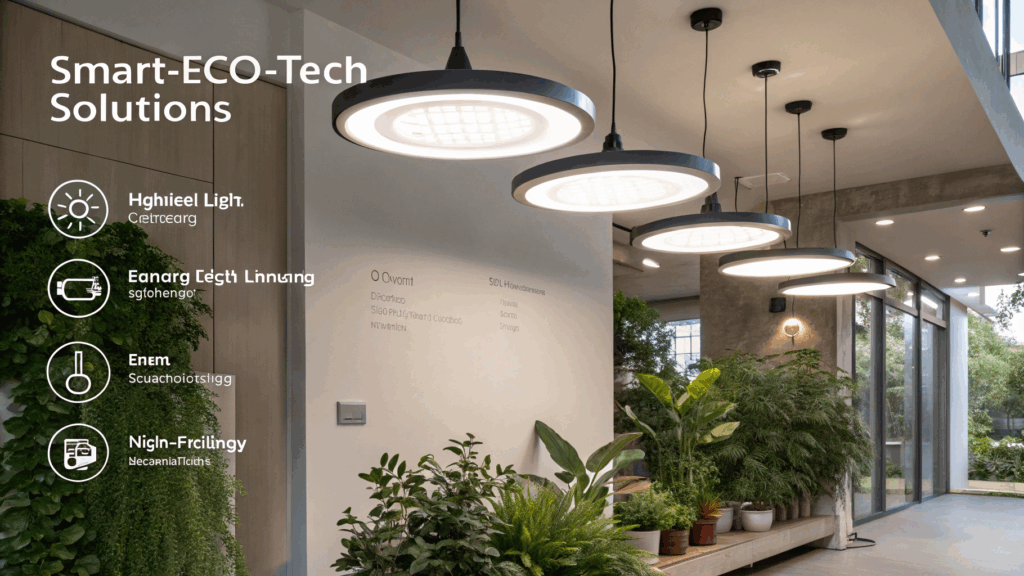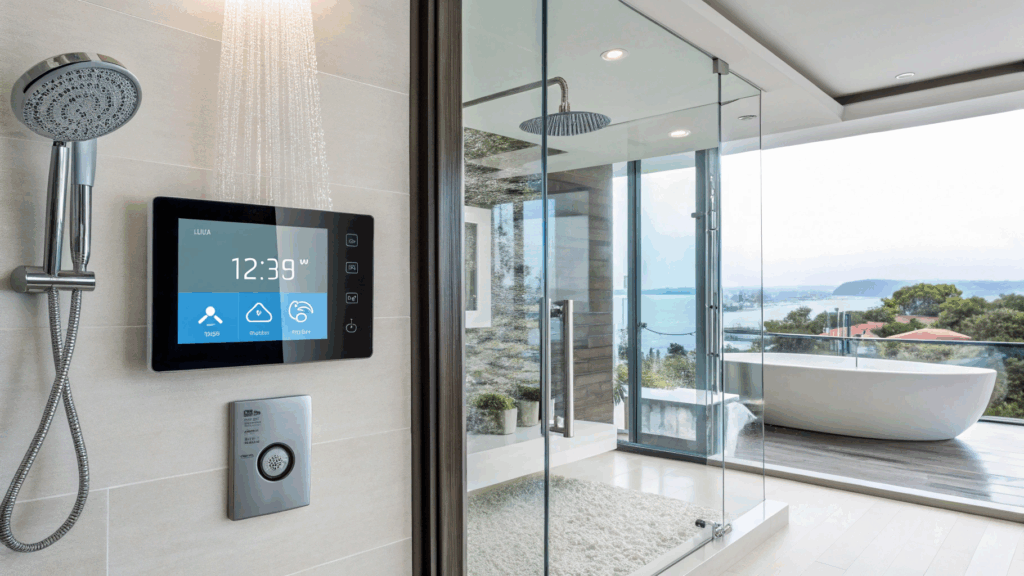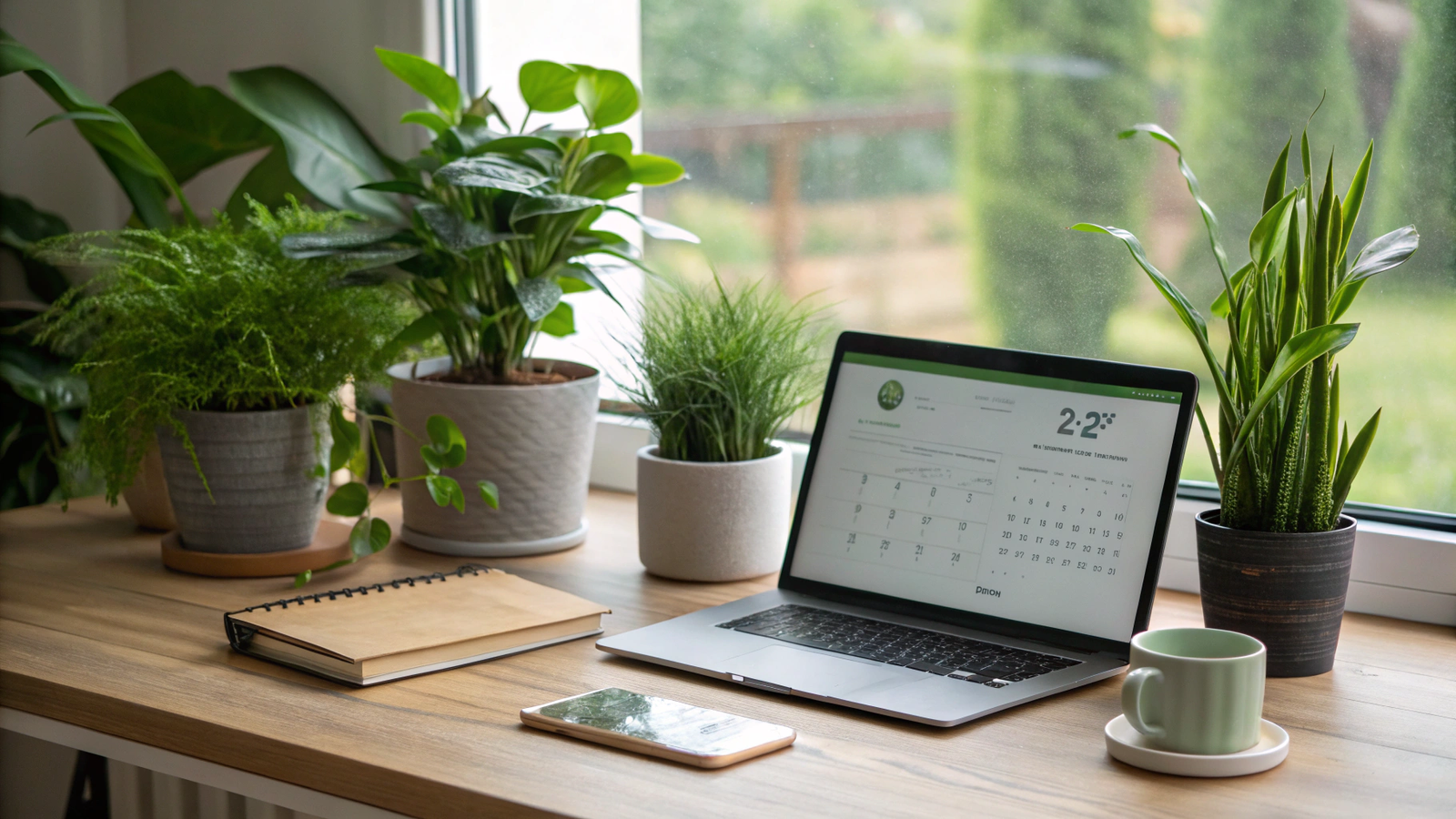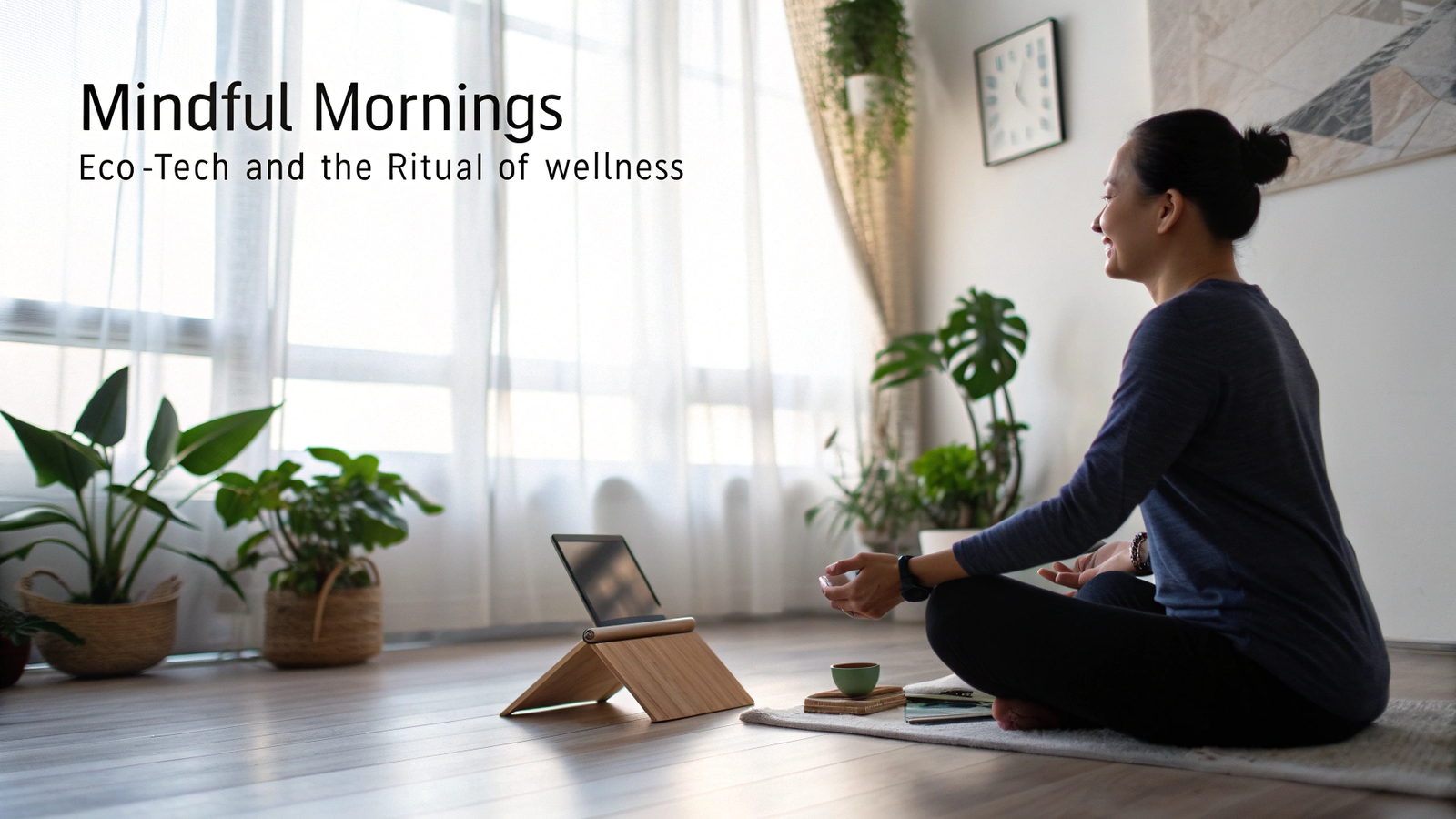Clean Energy, Clean Living: The Role of Tech in Daily Wellness Rituals
Introduction
In today’s world, health and environment are inseparable. With rising awareness of climate impact, many of us are seeking ways to live well that don’t cost the Earth. The fusion of clean-energy tech and wellness devices now offers that possibility: from solar-powered diffusers and air purifiers to intelligent sleep trackers and energy-efficient living spaces. These solutions don’t just support individual health—they model a lifestyle where personal vitality and ecological stewardship co-exist.
This article explores how clean-energy and eco-conscious technologies enhance daily wellness rituals—across hydration, air quality, relaxation, sleep, lighting, and more—integrating sustainable habits into every moment of wellbeing.
1. Morning Rituals with Clean-Power Wellness Tools
Solar Meditation & Aromatherapy Aids
Begin your day with serenity—and sunshine. Solar-powered meditation tools (such as solar-charged cushions or diffusers) harvest daylight to power speakers or emit soothing scents during breathing practice or journaling. They provide a grounding start with zero reliance on grid power Woman & Home+7dandy-wellness.com+7WIRED+7energysavergadgets.com.
Hydration Meets Smart Efficiency
Staying hydrated is foundational to wellness. Smart bottles like those from Bellabeat or HidrateSpark remind users to drink water throughout the day—improving energy and focus. Many sync with apps for long-term tracking and habit reinforcement AllTheThings+1Wikipedia+1. By using low-power electronics or solar-assisted smart bottles, these tools embody clean living through efficient tech.
2. Clean Air & Calm Interiors: Wellness via Environmental Control
Smart Air Purifiers and Monitors
Indoor air quality is critical to respiratory and mental health. Smart air purifiers like Dyson Pure Cool or Molekule monitor particulate, VOCs, and allergen levels—adjusting filtration automatically. Integrated air-quality sensors allow seamless responses to changing conditions, resulting in cleaner, healthier living spaces with minimal effort dandy-wellness.com+1Homes and Gardens+1.
Complementing purification, smart thermostats maintain optimal bedroom temperatures for sleep: cool but cozy settings enhance restorative rest without wasting energy UDA Ltd.+5aasmarthome.com+5Distritech+5.
3. Lighting & Circadian Alignment with Smart Eco-Tech
Circadian Lighting Systems
Smart lighting systems—like Philips Hue, Nanoleaf, or TP-Link Kasa bulbs—simulate natural light cycles indoors, shifting from cool light in the morning to warm tones in the evening. This supports restful sleep, morning alertness, and energy efficiency by lowering artificial lighting at peak times Palladio Tech.
These bulbs also consume up to 90 % less energy than incandescent equivalents. Automating them not only enhances wellness, but cuts energy use significantly Distritech.

4. Smart Sleep Tech: Recover Better, Live Cleaner
Sleep Tracking and Smart Beds
Wellness begins with rest. Devices like the Withings Sleep tracker or Eight Sleep Pod monitor sleep stages, breathing, and heart rate—requiring no wearable contact. Bed climate control and smart wake windows help users rise feeling refreshed and alert UDA Ltd.+11Distritech+11dandy-wellness.com+11.
Smart pillows, sleep masks, and room ambience systems gently cue transitions from wakefulness to rest, aligning sleep rhythms and promoting holistic recovery.
5. On-Demand Calm: Wellness Without Waste
Smart Diffusers and Aromatherapy Based on Clean Energy
Wellness sense doesn’t have to rely on electricity. Wi-Fi-enabled aromatherapy devices like Aera Smart Diffuser allow scheduling scents like lavender or citrus—creating mood‑enhancing ambience powered with minimal energy ever. Scheduling diffuser activity conserves energy and supports mental wellness rituals Palladio Tech+2dandy-wellness.com+2Distritech+2.
For off-grid or solar-powered rituals, solar diffusers integrate scent and calm with clean energy use energysavergadgets.com.
Intuitive Voice Prompts for Wellbeing
Voice assistants such as Alexa or Google Home now serve as gentle wellness coaches—prompting you to breathe, stretch, hydrate, or meditate. Scheduled prompts lower app dependency and help sustain habits with no screen use—building wellness routines powered by minimal energy inputs dandy-wellness.comanablock.com.
6. Movement & Biometric Being: Wearable Wellness
Solar-Assisted & Energy-Harvesting Wearables
Wearables like Garmin Instinct Solar or devices leveraging thermoelectric harvesting provide daily tracking with reduced charging needs, aligning with minimalist wellness and sustainability values Wikipedia.
Mindfulness Jewelry and Insight Coaching
Elegant tools like Bellabeat’s Leaf or Ivy track stress levels, menstrual cycles, sleep, and mindfulness, prompting breathing sequences or meditations aligned with real-time biometric data. Embedded wellness into daily routines helps users reflect, recharge, and recalibrate—all powered by efficient wearable technology Wikipedia.
7. Smart Water & Shower Rituals

ShowerStart and Smart Water Conservation
Eco-tech for wellness extends even to showers. Devices like the Evolve ShowerStart valve detect when water reaches 95°F and reduce flow until ready—cutting waste during pre-shower warm-up Green America.
Paired with smart faucets and scheduled usage, these reduce water and energy waste—turning daily hygiene into an intentional eco ritual.
8. Smart Cleaning & Wellness Environments
Automated Air & Surface Care via AI Tools
AI-enabled robot vacuums and air purifiers like iRobot Roomba Combo j9+ or Molekule Air Mini+ adapt cleaning intensity based on air quality or foot traffic—ensuring healthy environments continuously and sustainably dandy-wellness.com+2Homes and Gardens+2Distritech+2.
Such low-effort hygiene routines support wellness while conserving power and minimizing human effort.
9. Energy-Aware Healthy Living: Integration & Insight
Smart Home Automation for Wellness Harmony
Platforms like Nest Thermostats, automated blinds, wellness voice routines, and integrated lighting help homes anticipate user needs—balancing comfort, climate, and clean energy use. AI leverages occupancy and ambient data to maintain wellness environments with minimal energy expenditure Homes and Gardens.
Feedback, Tracking & Progress
Energy dashboards and health-tracking apps give insight into air quality, sleep patterns, hydration, and energy usage. These feedback loops encourage habit shifts—aligning clean living with mindful wellness behavior over time Distritechanablock.com.
10. Case Study: A Day Powered by Clean Tech & Wellness
Imagine a day structured around clean-energy tech for wellness:
- Early Morning: Wake naturally via soft sunrise lighting. Brew herbal tea via a solar-charged diffuser or hydration reminder from your bottle. Smart blinds raise and ambient temperature adjusts.
- Morning Practice: Deep breathing or guided eco-meditation using solar cushion or diffuser. Smart thermostat ensures living space is comfortably warm but energy efficient.
- Air & Movement: Smart air purifier energizes when dust increases, touchless faucet prevents water loss during pre-shower, ShowerStart valve minimizes wasted heat.
- Midday: Smart assistant prompts stretching or hydration. Wearable tracks steps, HRV, and breathing cues inform mindful breaks or hydration reminders.
- Evening Wind‑Down: Lighting shifts to warm tones. Sleep tracker gathers patterns while diffuser or aromatherapy signals restful mode. Air purifier reduces allergens. Robotic cleaning runs quietly.
- Night: Smart bed monitors sleep; AI anticipates user needs. Minimal device use and soft lighting support restful state with low energy.
Every step of the day supports health, comfort, and planetary well-being.
Challenges & Balanced Adoption
- Cost & Choice: Wellness tech ranges from luxury to budget models. Start small—smart bulb, hydration bottle, air monitor—and scale gradually for long-term benefit.
- Privacy & Data: Many devices collect health or biometric data. Prioritize local-control systems and robust data policies.
- Energy Source Mismatch: Use clean energy infrastructure where possible. Solar-powered gadgets and grid-tied solar systems enhance impact; advocate for access if unavailable.
- Tech Over-Washing: Wellness routines should retain intentionality. Keep screen-free rituals and manual mindfulness practices even as gadgets support the environment.
Conclusion
Clean Energy, Clean Living isn’t a slogan—it’s a lived lifestyle powered by thoughtful integration of eco-tech and wellness habits. From solar-powered meditation tools and hydration reminders to AI-driven lighting and air purification, these routines enhance well-being while cutting energy use and emissions.
Each ritual—waking with circadian light, breathing with solar-mediated diffusers, hydrating with smart bottles, resting with sleep tracking, breathing clean indoor air, showering with smart water control—contributes to a healthier body and planet. The act of living well becomes aligned with living lightly.
By weaving clean-energy tools into daily wellness, we reclaim rituals as sustainable, restorative, and deeply intentional—where personal wellness is inseparable from planetary stewardship.

